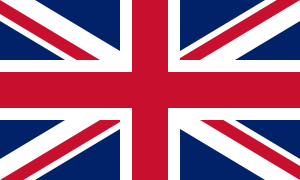British People
Britons, British people, or the British are people from Britain – either from the United Kingdom or the island of Great Britain.
In history, the people of the British Empire, and later the British Commonwealth, were also named British or Britons.
 | |
| Total population | |
|---|---|
 | |
| Regions with significant populations | |
| 57,678,000 | |
| |
| |
| |
| |
| |
| 840,000 | |
| 700,000 | |
| 400,000 | |
| 291,000 | |
| 247,899 | |
| 250,000 | |
| 240,000 | |
| 236,669 | |
| 200,000 | |
| 115,000 | |
| 79,447 | |
| 59,000 | |
| 51,000 | |
| 45,000 | |
| 45,000 | |
| 44,000 | |
| 44,000 | |
| 41,000 | |
| 39,989 | |
| |
| 34,279 | |
| 34,000 | |
| 32,000 | |
| 29,000 | |
| 28,000 | |
| 27,000 | |
| 26,000 | |
| 25,000 | |
| 25,000 | |
| 23,000 | |
| |
| 18,000 | |
| 16,732 | |
| Languages | |
| |
| Religion | |
| |
The first people to be named Britons were the people of ancient Britain, the ancient Britons. The ancient Romans named the people of Britain in Latin: Britanni, lit. 'Britons'. People from Roman Britain called themselves in Latin: Brittones. Bede used the spelling in Latin: Brettones, the spelling of which was possibly learned from the Old English word of the same meaning.
Originally, the word Briton in the English language meant a person from one of the Brythonic languages-speaking peoples in Great Britain and northern France: mostly the people of Strathclyde, Wales, Cornwall, and Brittany. This meaning of the word was used in Middle English from the 13th century and after. In the 16th and 17th centuries, Briton could also be a name for Welsh people.
The use of Britons to mean all the people of Britain was not common in the English language before the early 18th century. It became more usual after the Acts of Union 1707 joined together the Kingdom of England and the Kingdom of Scotland into the United Kingdom of Great Britain. The word Briton was frequently used in the 18th and 19th centuries with the suggestion of "qualities of bravery and fortitude". The rare word "Britoness" was sometimes used in the past for women from Britain. Writers like Edmund Spenser, Thomas Babington Macaulay, and Alfred, Lord Tennyson used it for strong women like the ancient British queen Boudica (who fought the Romans) and the English queen, Elizabeth I (whose Royal Navy defeated the Spanish Armada).
Citizenship
To become a British citizen, there are many different thing that must be considered. Unlike some countries, a person is not a citizen of Britain just because they were born there. When they were born and the citizenship status of thieir parents can affect if the can be a citizen. Other things that may affect being a citizen of England include being married to a British citizen, having indefinite leave to remain (ILR) and then living in the UK for 12 months or if the person had "settled status".
Other things that may let a person apply for citizenship include having a British parent, being a citizen of another British country, not being a citizen of any country or having been a citizen in the past but giving up that citizenship. A person may also be able to apply if their parents came to the UK before 1973 and that person was also born in the UK or moved to it before they were 18. They must also have not moved away from the UK for more than two years.
References
This article uses material from the Wikipedia Simple English article British people, which is released under the Creative Commons Attribution-ShareAlike 3.0 license ("CC BY-SA 3.0"); additional terms may apply (view authors). Content is available under CC BY-SA 4.0 unless otherwise noted. Images, videos and audio are available under their respective licenses.
®Wikipedia is a registered trademark of the Wiki Foundation, Inc. Wiki Simple English (DUHOCTRUNGQUOC.VN) is an independent company and has no affiliation with Wiki Foundation.